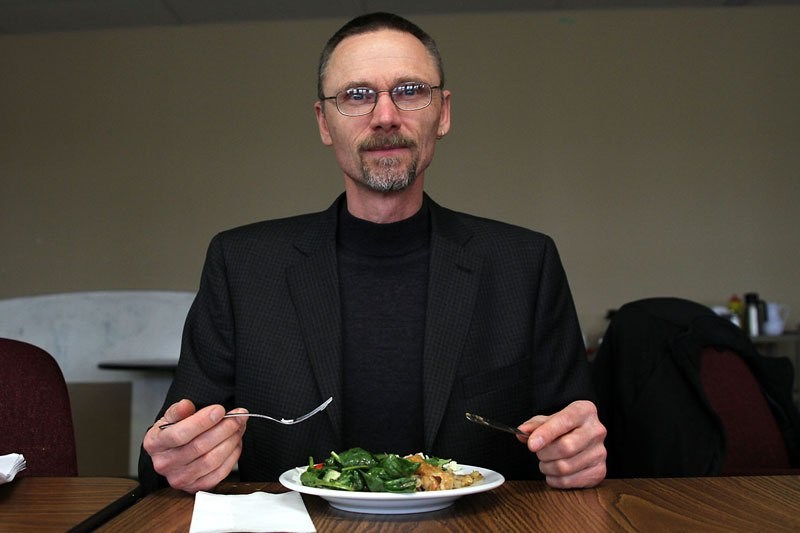Buying more local food makes economic sense, says Don Mills, president of Local Food Plus.
He’d like to see more local food procured by institutions in Thunder Bay, such as the hospital, schools and city facilities. While local food is often fresher and supports the economy, it tends to be more expensive than food shipped in from overseas.
“Certainly there’s an opportunity here for local farmers to participate. Farmers being farmers, they spend their money close to home, so it brings the money back into the community and keeps it in the community,” Mills said Wednesday, after speaking about the topic at a session held at the Regional Food Distribution Agency’s Syndicate Street South warehouse.
“There’s a food miles issue. We want to have food traveling less distance. And it brings control of the food system back into the hands of the people who are eating the food, so they have some say in how the food is grown.”
The trick is convincing the powers that be at local institutions of the benefits of procuring food from within the immediate area.
It can be done, Mills said.
“It comes down to some decision-making on the part of people who do the procurement. It’s important for them to make the decision they want to source this food. The conversations have to happen with the farmers. Everybody is engaged in the food business,” he said.
“The folks who are buying have to make this work in terms of their business plan. The farmers have to make it work. So it’s not magic, but there is some hard work and some work in the middle.”
Who is going to move that food from the farm to the institutions, who tend to purchase less raw product and more prepared foods, which are less demanding to cook and serve.
Thunder Bay’s Raili Roy, a long-time advocate of local food use, said the movement is well underway in the city.
The municipality is working toward a two per cent increase in local-food procurement each year and Roy said there’s no reason it can’t continue to spread.
“Every little bit that’s being done is a step in the right direction. I’m so pleased to see what our city is doing and the efforts that they’re making in order to move this thing forward.”
At any level, the importance is obvious.
“Institutions have tremendous buying power,” she said. “Having institutional support for local farmers could mean a big difference to the local food economy. They can be the biggest supporters, the backbone of our local food economy.”
Ultimately this could lead to more farmers and more food available throughout the city.
“My ideal goal is to see farming increase in Thunder Bay and to see us with a larger and more diverse population of farmers – more vegetables, more beef and possibly chicken one day.”
